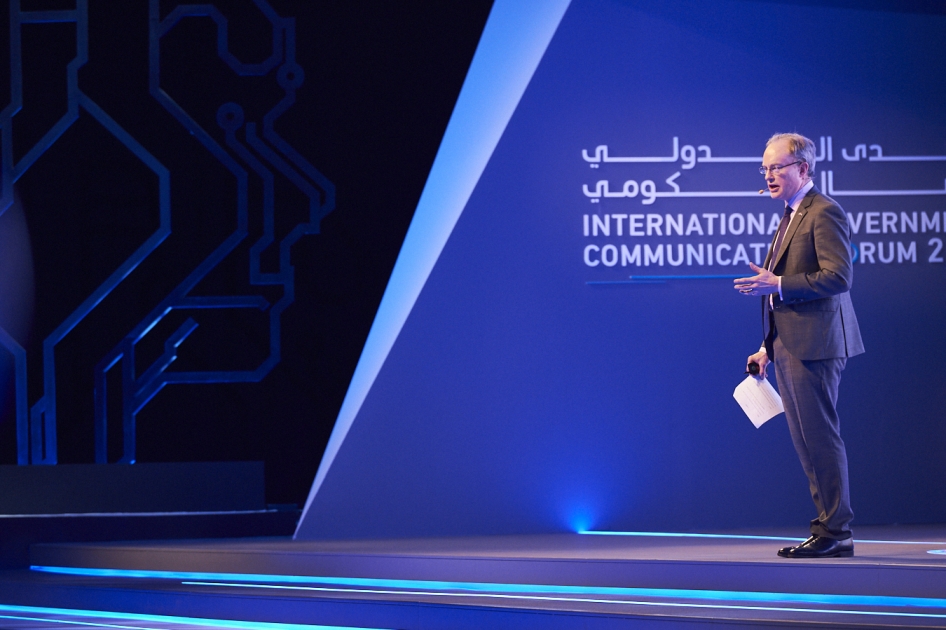
Emotion Vs Science: The Two Sides of Communication Explored at IGCF 2018
“Start with Why,” were the first words that came out of the mouth of the Canadian strategy expert, Heath Slawner, who was more concerned about the meaning and purpose of communication, and how leaders connect and inspire by applying the art a bit more selflessly, than the more obvious technicalities that one sees on the surface.
The man’s biggest influence is Start with Why by Simon Sinek, a book that inspires people to be fearless in chasing their dreams and do the things that really inspire them; those that are driven more by the aspect of ‘why’ than that of ‘what’ and ‘how’.
“When we lose our ‘why’, we lose the way. In communication as in any other field, you will only have the capacity to inspire if you know your ‘why’. You must have a clear sense of purpose as that is the only effective way to communicate.”
Slawner cited examples of how some of the biggest corporations in the world like Xerox were bought off by their arch rivals, Fuji Film, and Kodak thought of themselves for the longest time as being in a business of manufacturing physical films, and resisted the idea of launching the digital camera when Steven Sasson invented the first self-contained digital camera at Eastman Kodak in 1975.
He compared this approach to that of Elon Musk’s who sold over 600,000 electric vehicles in a six-week period in 2016, which was more than all the electric vehicles that the US drove at the time. This was simply because his emphasis has always been on Tesla’s ‘why’: to accelerate the world’s transition to sustainability. His ‘why’ is born out of his eagerness to protect the planet for the future generations.
“Most people can talk about the how, but very few even take notice of the why. By why? I mean what is the reason a government, a company or an individual even exists. What is the emotional human reason for governments to exist? It’s no longer enough for governments to tell people what they do or how they do it, and expect people to support them. That is naïve thinking because research and science have proved time and time again that people make decisions based on emotional reasons and they justify after that the rational reasons. “The emotional reasons all rest in the ‘why’.”
His interaction focused on the emotional aspect of good communication and highlighted that governments need to build trust in their people by being selfless and by showing they care.
Alex Aiken - Communications is a science, not an art
The other side of the spectrum was presented by Alex Aiken, Executive Director of Government Communications for the UK Government, who told the audience at the 7th International Government Communication Forum (IGCF) that unless state messages are based on truth and facts, they will fail.
On the 100th anniversary of the British Ministry of Information, Aiken described the mistakes of past government communication, highlighting the false propaganda of German atrocities during the First World War. When the truths of World War II were relayed to the people, they were dismissed by the public on the grounds that they had been lied to once before and the element of trust had been lost, he pointed out.
“This is why all good government communication must be seen as a ‘Force for Good’ and a ‘Truth Well Told’,” he stressed speaking at the Sharjah forum.
“In a century of trial and error, we have learnt from our mistakes and continue to learn. There is a pride and professionalism within our staff and a desire to progress. We believe that every communication should be a campaign and to influence the audience for the good of the public.
“We must remember that communication is a science, not an art and we need facts, research and data to ensure our messages are truthful and accurate,”he added.
Addressing some of the challenges facing the government communication sector today, Aiken stressed that a new age of technology could be problematic as well as beneficial.
“We have created thousands of campaigns over 100 years and with every generation we have to rebuild and recreate our messaging. More than ever, governments must develop their ability to listen, respond at pace, manage trust and, of course, manage misinformation.”
Aiken stressed that an effective government communications team must itself be trusted as well as be effective.
IGCF, which is organised by the International Government Communications Centre and is being held at Expo Centre Sharjah, concludes on May 29.
Since its launch in 2012, the IGCF has been successful in fostering government communication in the UAE and greater Arab world, and developing communication channels between governments and the public. To achieve its goals, IGCF has hosted elite experts and influential speakers to share their expertise and visions on the best methods of upgrading government communication and increasing its efficiency in dealing with the challenges facing the world at the present time and in the future.























